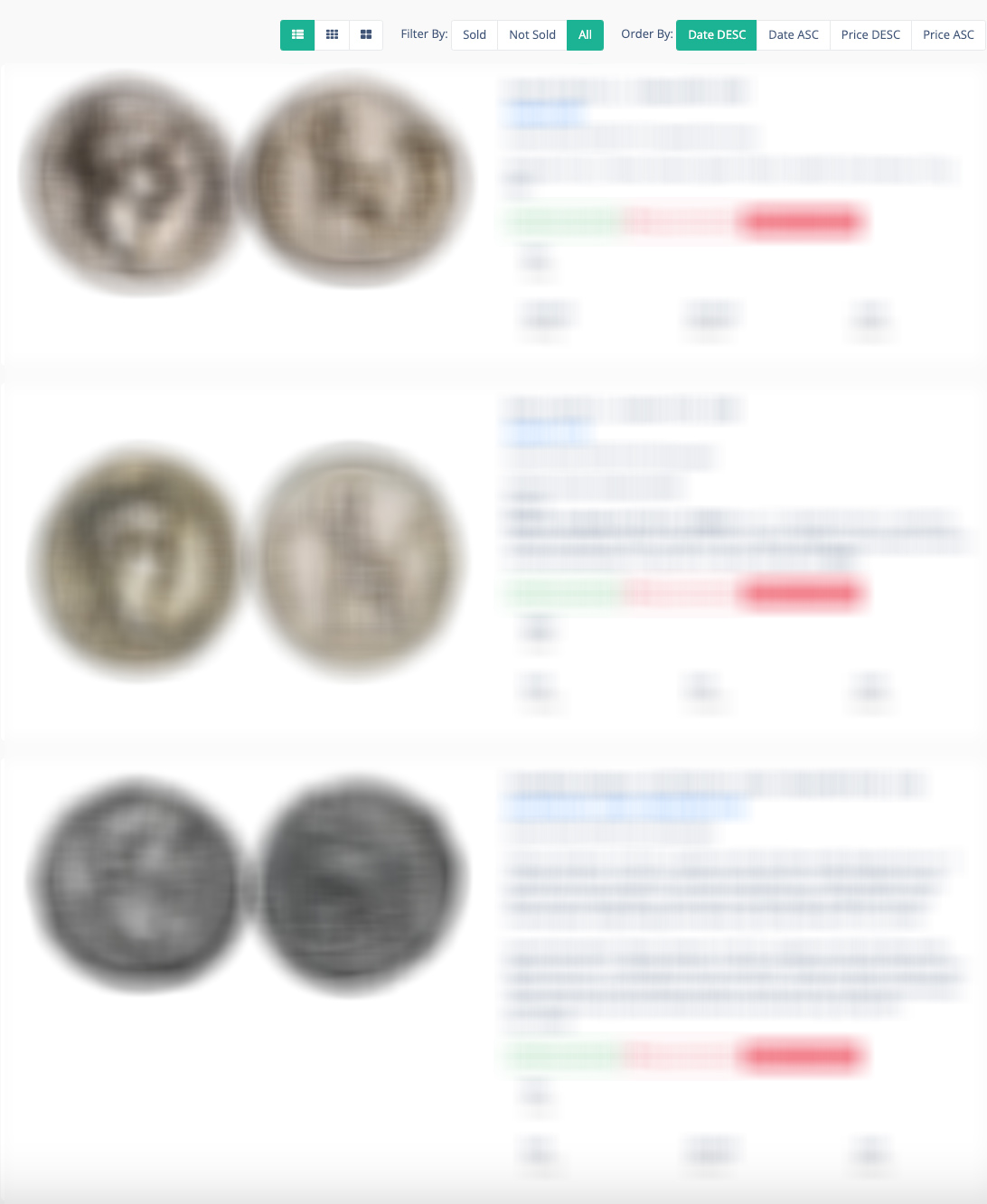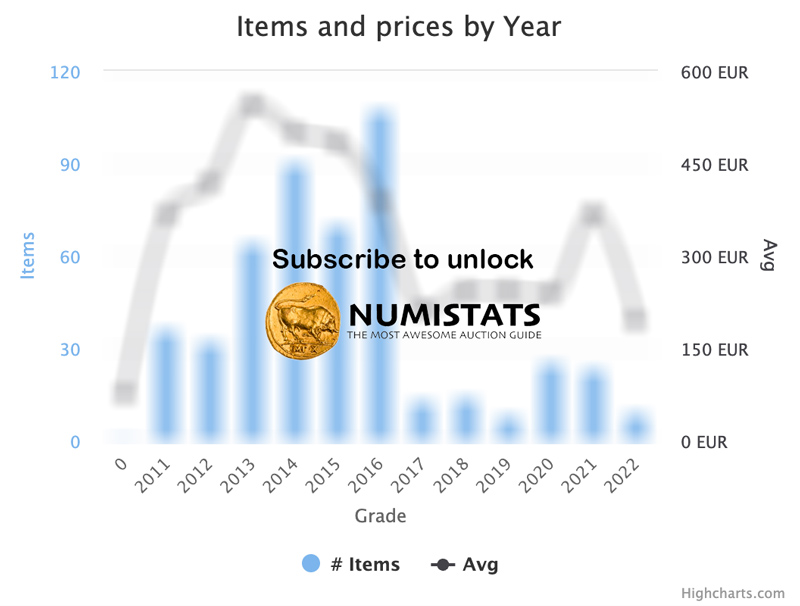Classical Numismatic Group, LLC - Triton XXVIII – Sessions 1-4 . 724 Numistats ref: 673213

Didius Julianus
Autoridad
Dupondius
Denominación
-
Año
RIC ric.4.dj.13
RIC 13
Referencias
Roman Imperial
Categoria
Didius Julianus. AD 193. AR Denarius (17mm, 2.60 g, 12h). Rome mint. IMP CAES M DID IVLIAN AVG, laureate head right / RECTOR ORBIS, Didius Julianus, togate, standing left, holding globe in outstretched right hand and volumen in left. RIC IV 3; RSC 15; BMCRE 7-8. Toned, shallow scrape on obverse under tone. Near EF. An attractive example for issue.
Ex MACM inventory MMoCA182C; A. Lynn Collection (Manhattan Sale I, 5 January 2010), lot 332; Classical Numismatic Group 53 (15 March 2000), lot 1612.
Didius Julianus was born to a wealthy family in AD 137, probably in Milan. He had a prominent government career, including several provincial governorships, in the reigns of Marcus Aurelius and Commodus. Though successful, he did not earn the respect of his fellow senators, who regarded him as a sensualist and a spendthrift. When the Emperor Pertinax was killed by the Praetorians after only a three-month reign on March 28, AD 193, no ready successor was at hand. Pertinax’s father-in-law, Flavius Sulpicianus, entered the Praetorian camp and tried to get the troops to proclaim him emperor, but he met with little enthusiasm. Sensing an opportunity, Didius Julianus rushed to the camp and began to make cash promises to the soldiers from outside the wall. Soon the scene became an auction, with Sulpicianus and Julianus striving to outbid each other for the favor of the troops. When Sulpicianus reached 20,000 sesterces per soldier, Didius Julianus upped the bid by a whopping 5,000 sesterces, signaling with hand gestures. The emperorship was sold. Julianus was allowed into the camp and the Praetorians proclaimed him emperor. Confronted by the Praetorian swords, the Senate approved his elevation, but could not hide its disgust. Disturbances broke out throughout the city, and a crowd at the Colosseum loudly called for Pescennius Niger, governor of Syria, to march on Rome. Niger was not the only alternative. Two other provincial governors also declared themselves emperor: Clodius Albinus in Britain, and Septimius Severus in Pannonia. Severus, closest to Rome, immediately marshaled his troops and invaded Italy. Julianus at first tried negotiations, then sent assassins to kill Severus, to no avail. Julianus next tried to fortify Rome but the results were ineffective and ludicrous. With Julianus’ authority in Rome rapidly deteriorating, Severus sent messages to the Praetorians, who renounced their allegiance to Julianus. Seeing their cue, the Senators proclaimed Severus emperor and passed a death sentence on Julianus. On June 1, AD 193, a Praetorian officer found the cringing Julianus hiding in the palace and dispatched him, ending his pathetic 65-day reign.
The reverse of this attractive silver denarius depicts Julianus with the grandiose title “Rector Orbis,” or ruler of the world. In reality, his authority never extended far beyond the immediate environs of Rome. Descripción
Ex MACM inventory MMoCA182C; A. Lynn Collection (Manhattan Sale I, 5 January 2010), lot 332; Classical Numismatic Group 53 (15 March 2000), lot 1612.
Didius Julianus was born to a wealthy family in AD 137, probably in Milan. He had a prominent government career, including several provincial governorships, in the reigns of Marcus Aurelius and Commodus. Though successful, he did not earn the respect of his fellow senators, who regarded him as a sensualist and a spendthrift. When the Emperor Pertinax was killed by the Praetorians after only a three-month reign on March 28, AD 193, no ready successor was at hand. Pertinax’s father-in-law, Flavius Sulpicianus, entered the Praetorian camp and tried to get the troops to proclaim him emperor, but he met with little enthusiasm. Sensing an opportunity, Didius Julianus rushed to the camp and began to make cash promises to the soldiers from outside the wall. Soon the scene became an auction, with Sulpicianus and Julianus striving to outbid each other for the favor of the troops. When Sulpicianus reached 20,000 sesterces per soldier, Didius Julianus upped the bid by a whopping 5,000 sesterces, signaling with hand gestures. The emperorship was sold. Julianus was allowed into the camp and the Praetorians proclaimed him emperor. Confronted by the Praetorian swords, the Senate approved his elevation, but could not hide its disgust. Disturbances broke out throughout the city, and a crowd at the Colosseum loudly called for Pescennius Niger, governor of Syria, to march on Rome. Niger was not the only alternative. Two other provincial governors also declared themselves emperor: Clodius Albinus in Britain, and Septimius Severus in Pannonia. Severus, closest to Rome, immediately marshaled his troops and invaded Italy. Julianus at first tried negotiations, then sent assassins to kill Severus, to no avail. Julianus next tried to fortify Rome but the results were ineffective and ludicrous. With Julianus’ authority in Rome rapidly deteriorating, Severus sent messages to the Praetorians, who renounced their allegiance to Julianus. Seeing their cue, the Senators proclaimed Severus emperor and passed a death sentence on Julianus. On June 1, AD 193, a Praetorian officer found the cringing Julianus hiding in the palace and dispatched him, ending his pathetic 65-day reign.
The reverse of this attractive silver denarius depicts Julianus with the grandiose title “Rector Orbis,” or ruler of the world. In reality, his authority never extended far beyond the immediate environs of Rome. Descripción
Near EF
Conservación
1150.5 EUR
Salida
1917.5 EUR
Estimado
EUR
Realizado
AI Recommendation
Para estimar un precio máximo de compra para la moneda en cuestión, consideraremos varios factores:
1. Precio de salida: El precio de salida es de 1150.5 euros, lo que indica el valor inicial que se espera obtener en la subasta.
2. Conservación: La moneda tiene una conservación de 85 (Near EF), lo que sugiere que está en muy buen estado, lo que puede aumentar su valor en comparación con monedas de menor conservación.
3. Historial de subastas: Dado que no hay datos de subastas anteriores para esta moneda (0 veces subastada y 0 veces vendida), esto puede indicar que es una moneda poco común o que no ha tenido mucha circulación en el mercado. Esto puede influir en su valor, ya que la rareza puede aumentar el interés de los coleccionistas.
4. Expectativas del mercado: Dado que hay una subasta programada en los próximos días, el interés de los coleccionistas puede influir en el precio final. Si hay demanda, el precio podría superar el precio de salida.
Teniendo en cuenta estos factores, un precio estimado máximo de compra podría ser un 20-30% por encima del precio de salida, especialmente si hay interés en la moneda.
Por lo tanto, un precio estimado máximo de compra podría estar en el rango de 1380 a 1490 euros. Esto es solo una estimación y el precio final dependerá de la dinámica de la subasta y del interés de los postores.
1. Precio de salida: El precio de salida es de 1150.5 euros, lo que indica el valor inicial que se espera obtener en la subasta.
2. Conservación: La moneda tiene una conservación de 85 (Near EF), lo que sugiere que está en muy buen estado, lo que puede aumentar su valor en comparación con monedas de menor conservación.
3. Historial de subastas: Dado que no hay datos de subastas anteriores para esta moneda (0 veces subastada y 0 veces vendida), esto puede indicar que es una moneda poco común o que no ha tenido mucha circulación en el mercado. Esto puede influir en su valor, ya que la rareza puede aumentar el interés de los coleccionistas.
4. Expectativas del mercado: Dado que hay una subasta programada en los próximos días, el interés de los coleccionistas puede influir en el precio final. Si hay demanda, el precio podría superar el precio de salida.
Teniendo en cuenta estos factores, un precio estimado máximo de compra podría ser un 20-30% por encima del precio de salida, especialmente si hay interés en la moneda.
Por lo tanto, un precio estimado máximo de compra podría estar en el rango de 1380 a 1490 euros. Esto es solo una estimación y el precio final dependerá de la dinámica de la subasta y del interés de los postores.
Roman Imperial. Didius Julianus. Dupondius RIC ric.4.dj.13 RIC 13

Didius Julianus
Autoridad
Dupondius
Denominación
-
Ceca
-
Año
RIC ric.4.dj.13
RIC 13
Referencias
IMP CAES M DID IVLIAN AVG
Leyenda anverso
RECTOR ORBIS S C
Leyenda reverso
Head of Didius Julianus, radiate, right
Tipo anverso
Julianus, togate, standing left, holding globe in right hand and roll in left hand
Tipo reverso
Vendido (0%)
No vendido (0%)





